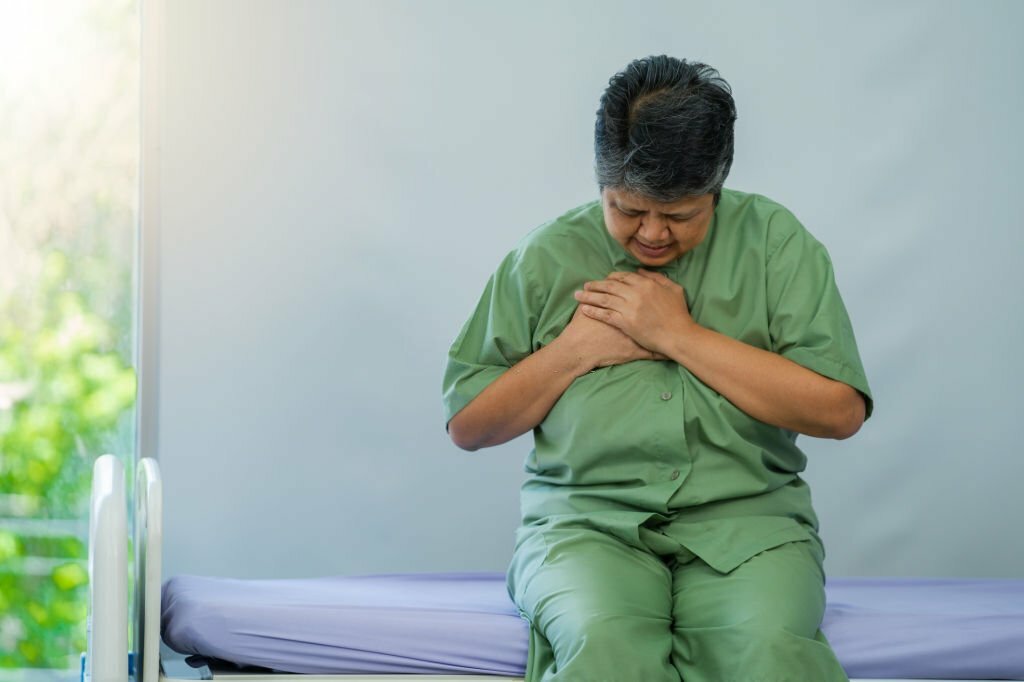
Ablation is the process or treatment of atrial fibrillation, and atrial fibrillation is a condition in which patients have rapid heart rhythms. Ablation helps the patient have regular heart rhythms, and after ablation, the patient will face mild chest pain or discomfort.
Some possible reasons include irritation of the heart tissue during the procedure, inflammation at the ablation site, or the formation of small blood clots. Somehow, in most cases, the chest pain will be mild for a short time, but if someone faces higher pain after a long time of ablation, then it's better to seek your doctor or health care.
What Are The Causes Of Chest Pain After Ablation?
There are several factors or causes of chest pain after an Ablation because it’s a treatment of atrial fibrillation in which patients face rapid heart rhythms. The main factors are the body's response to the ablation, potential irritation, normal post-operative reactions, etc.
Body's Response To The Ablation Or Potential Irritation:
The body's response to ablation can occasionally lead to chest pain due to several factors associated with the procedure. The insertion of catheters and the energy to modify or remove abnormal tissue may cause temporary inflammation. It can be the reason for soreness and discomfort in the chest. Somehow, the chest pain after ablationwill be mild, but if you are facing high pain after a long time of ablation, you have to seek a doctor.
Normal Post-operative Reactions:
Several individuals face post-operative reactions during the healing process because, after ablation, the body starts healing due to the immune system. Many factors like chest pain, shortness of breath, Minor Bruising, Low-Grade Fever, signs of infection, etc, are common after ablation. Somehow, if you face these factors for a long time after ablation it, should be promptly reported to healthcare providers for further evaluation and appropriate management
How Long Does It Take For Heart To Heal After Ablation?
The healing procedure of the ablation is around 8 weeks, which means that after ablation, a normal person takes 8 weeks to heal. However, in the first few weeks, you will feel discomfort in your chest, and you will also have to face rapid rhythms in the first few weeks. During those weeks, you must follow all the things that the doctors suggest, and you also have to take regular anti-arrhythmic medications. If you take these medicines, it's better for you because they will help in healing procedures.
There are some healing stages after ablation in the first stage in which, in the first few days, patients feel mild discomfort in the chest area, and as the day progresses, the inflammatory response triggered by the procedure begins to subside, leading to a reduction in swelling and tenderness.
After some weeks, the body heals or repairs tissues, but somehow, there are chances of irregular heart rhythms. At the end of the first month, most individuals improve, and the body heals almost all the tissues. Most people don't face irregular heart rhythms, but the proper healing time is almost 8 weeks.
Is Chest Pain Common After An Ablation?
Yes, mild chest pain is common after ablation, and it will typically last a few days. Research published in medical journals suggests that up to 50-70% of patients may experience some form of chest pain or discomfort post-ablation. The insertion of catheters and the energy to modify or remove abnormal tissue may cause temporary inflammation.
If you have mild chest pain after some time of ablation, then it's common, but if you have heavy chest pain with other symptoms like shortness of breath, Minor Bruising, etc, then it's a risk for you. You must contact your doctor or seek a healthcare team.
When To See A Doctor
Most individuals do not face any symptoms after ablation, which means that they face just normal chest discomfort. It’s common for most people to feel chest discomfort after ablation, but for some reason, you must have contact with your doctor. Some people face heavy chest pain and other symptoms like Increased bleeding, Shortness of breath, Bruising, etc. In that case, you must seek a doctor's attention because it's very risky. Therefore, the doctor checks the patient's history and gives you the best suggestion for that, so if you face any of these symptoms, it is better to contact the doctor.
Final Thoughts
It is a common problem that after the ablation, you may have a slight circular pain in the chest and that pain is only for some time, and after some time, the pain will go away on its own. And there can be many reasons for this chest pain, such as potential irritation, normal post-operative reactions, etc.
After the ablation, it may take up to a few weeks, like almost 8 weeks, to heal, and for the first few weeks, you may experience mild chest discomfort and pain. In the first few weeks, it is a mild pain, but after a few weeks, it gets better on its own. Apart from that, if you get any other symptoms like Shortness of breath or heavy chest pain, it is better to contact the doctor.